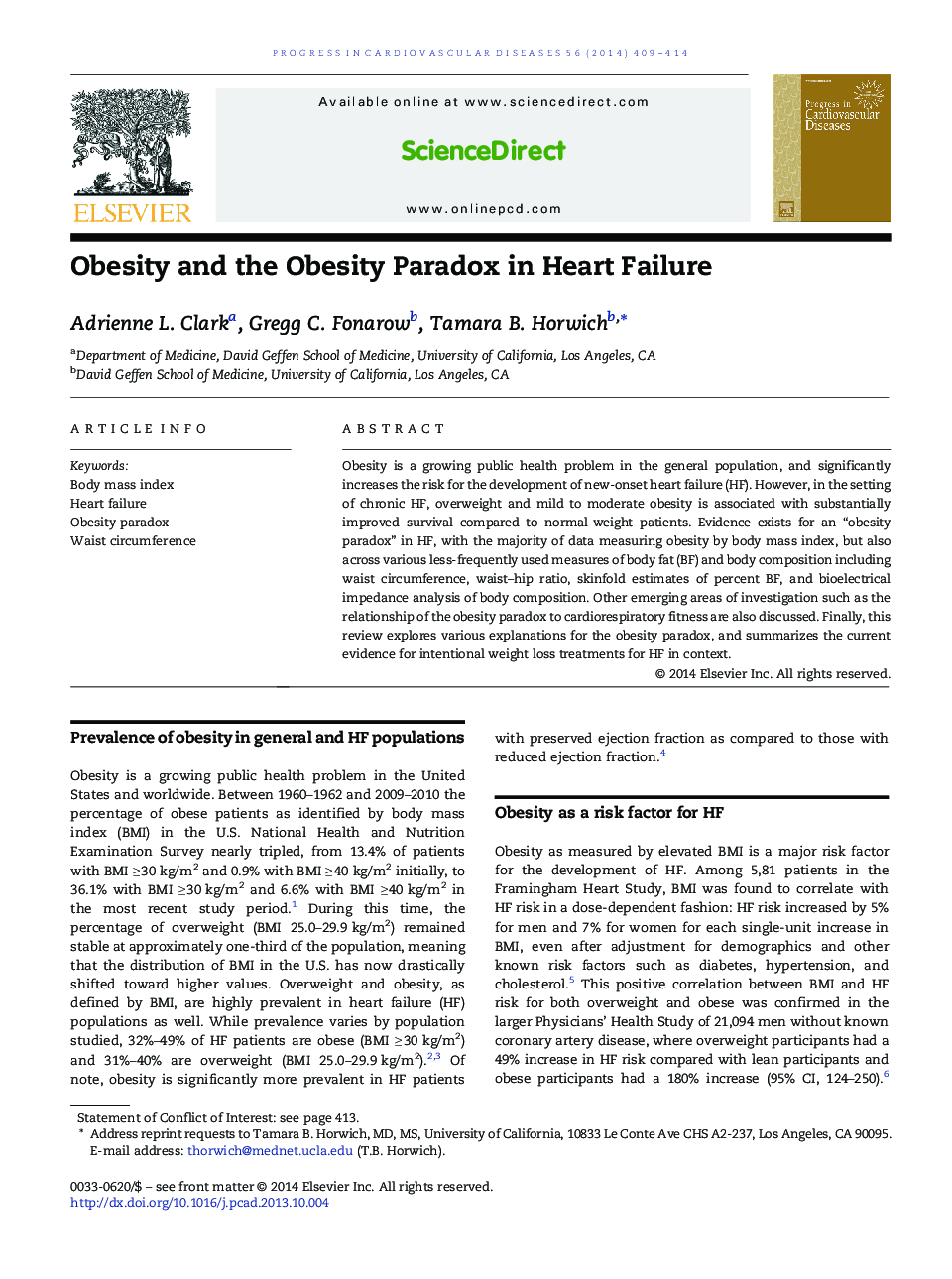| Article ID | Journal | Published Year | Pages | File Type |
|---|---|---|---|---|
| 3006603 | Progress in Cardiovascular Diseases | 2014 | 6 Pages |
Obesity is a growing public health problem in the general population, and significantly increases the risk for the development of new-onset heart failure (HF). However, in the setting of chronic HF, overweight and mild to moderate obesity is associated with substantially improved survival compared to normal-weight patients. Evidence exists for an “obesity paradox” in HF, with the majority of data measuring obesity by body mass index, but also across various less-frequently used measures of body fat (BF) and body composition including waist circumference, waist–hip ratio, skinfold estimates of percent BF, and bioelectrical impedance analysis of body composition. Other emerging areas of investigation such as the relationship of the obesity paradox to cardiorespiratory fitness are also discussed. Finally, this review explores various explanations for the obesity paradox, and summarizes the current evidence for intentional weight loss treatments for HF in context.
